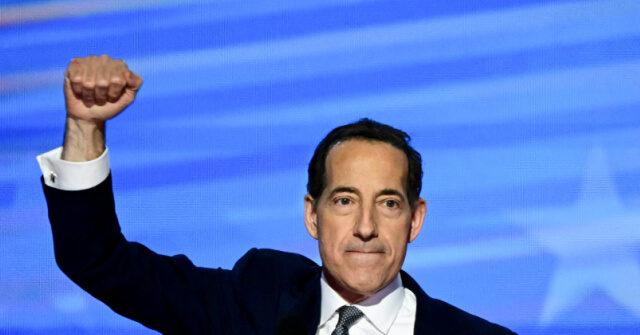In a recent development, prominent congressional Democrats have expressed uncertainty about certifying the results of the 2024 election should former President Donald Trump emerge as the victor. This has led to potential accusations of hypocrisy, particularly directed at members like Jamie Raskin (D-MD), who previously objected to Trump’s electors during the 2017 election. Raskin’s statement to Axios reflects a conditional stance: while he acknowledged the possibility of accepting a legitimate Trump win, he does not inherently trust the fairness of the election process, contradicting his earlier assertions about election validity. This uncertainty raises questions regarding the commitment of Democrats to democratic processes, especially as concerns about election integrity grow.
Raskin’s comments echo a broader sentiment among some Democrats who are gauging how events will unfold during the election process. House Rules Committee Ranking Member Jim McGovern (D-MA) indicated that certifying Trump’s victory would depend on unpredictable factors. Meanwhile, Rep. Jan Schakowsky (D-IL) highlighted her concerns about potential “shenanigans,” emphasizing the need for rigorous adherence to electoral protocols. This cautious approach showcases the heightened political climate and the lingering aftershocks of previous elections, particularly the 2020 election amid substantial partisan divides.
The situation is further complicated by historical patterns of Democratic objections to election results. Democrats have a track record of disputing numerous elections over the past two decades, suggesting that they have engaged in similar practices attributed to Republicans. Prominent Democrats, including President Joe Biden, have voiced skepticism about various election outcomes, questioning the legitimacy of Republican victories since 2000. This ongoing narrative creates an interesting paradox where accusations of election denialism can be seen on both sides of the aisle, challenging the integrity of the electoral system and how it is perceived by the public.
In past instances, notable Democratic figures have openly declared elections to be “stolen” or “fraudulent,” with specific attention to the 2000 election involving Al Gore’s loss to George W. Bush. Democrats have not only questioned individual elections but have also framed the discussion around potential systemic fraud, as evidenced by historical commentary from party leaders such as Howard Dean and Nancy Pelosi. This pattern demonstrates a long-standing trend of skepticism among Democrats, causing discomfort as they navigate similar rhetoric directed at recent elections conducted under their watch.
Furthermore, the evolving narrative surrounding Stacey Abrams’ electoral claims in Georgia illuminates the ongoing discourse of perceived election improprieties. High-profile Democrats have rallied behind Abrams, suggesting her electoral loss was a result of unfair practices, akin to previous objections raised by party members. The voices of Senators such as Cory Booker and Elizabeth Warren endorsing claims of a “stolen election” reflect the persistent theme within the Democratic party of questioning electoral legitimacy when outcomes are unfavorable, reinforcing the cyclical nature of election-related controversies regardless of party affiliation.
Overall, the hesitance of Democrats, as outlined in their comments about the upcoming election, reflects a growing concern about the integrity of the electoral process. It highlights a complex interplay between defending democratic principles and the strategic political gamesmanship employed when faced with potential losses. As the political landscape evolves, both parties must grapple with their historical actions and the impact these have on public trust, accountability, and the fundamental belief in the electoral system. The tension surrounding election certification practices underlines a critical moment in U.S. politics, with significant implications for the future of democracy in the nation as the 2024 election approaches.

